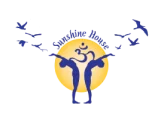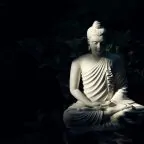Meditation, the Art of Mental Mastery
The way we perceive the world around us completely depends upon our state of mind. In our search for happiness, we essentially have two options — modify the entire world so that everything turns out exactly the way we want it or modify our mind so that we are able to be happy, content and peaceful, regardless of what happens in the external world. The former is obviously impossible. We have very little control over our external world. The only hope for happiness lies in controlling the inner world. Meditation is a key element in this process.
The mind is like a machine. But it is completely up to us to maintain that machine properly. Only then will we be able to get the maximum potential out of it. We should also know how to turn the machine off. This, sadly, has become a lost art, and the very reason we see so many people around as “blowing fuses.”
Meditation can rest the mind, reduce stress, promote clear thinking, improve memory and increase our capacity for empathy and compassion. The mental health benefits of meditation are virtually endless, from addiction recovery to reduced anxiety and depression to enhanced creativity and improved cognitive function. Meditation can actually increase neuroplasticity, making it possible to literally rewire the brain.
Meditation is a practice of self-care, as it provides a connection with the inner self. In doing so, self-esteem increases and we can align with our authentic feelings and desires which allows better self-regulation and emotional stability. Sustaining a daily practice can actually maintain and improve our physical, emotional and mental health and help us connect with others in a peaceful and beneficial way for the good of all.
How to meditate
The usual image of a meditating person is sitting with the back straight, eyes closed and body relaxed and just breathing. This is enough and is already beneficial for our Being. We also suggest the following practices as the pathway to the Self:
Vipassana Meditation
Vipassana, which means to see things as they really are, is one of India’s most ancient techniques of meditation. It was rediscovered by Gotama Buddha more than 2500 years ago and was taught by him as a universal remedy for universal ills. This non-sectarian technique aims for the total eradication of mental impurities and the resultant highest happiness of full liberation. Healing, not merely the curing of diseases, but the essential healing of human suffering, is its purpose.
For Vipassana courses worldwide you can visit www.dhamma.org.
Integrated Amrita Meditation Technique®
IAM is a simple combination of yoga, pranayama and meditation that takes just 20-30 minutes a day. It is a meditation technique for modern days. The technique is a synthesis of traditional, time-tested methods suited for the current mental conditions, time-constraints and needs of modern man.
Information about IAM courses in Greece: amma-greece.gr or ammahellas.wordpress.com.
Mindfulness
Mindfulness is the energy of being aware and awake to the present moment. It is the continuous practice of touching life deeply in every moment of daily life. To be mindful is to be truly alive, present and at one with those around you and with what you are doing. We bring our body and mind into harmony while we wash the dishes, drive the car or take our morning shower.
You will find beautiful Mindfulness retreats at www.plumvillage.org.
Metta Meditation
The object of Metta meditation is loving-kindness without attachment. Traditionally, the practice begins with the meditator cultivating loving-kindness towards themselves, then their loved ones, friends, teachers, strangers, enemies, and finally towards all sentient beings. It is a technique that allows us to recall and heal wounds of the past, see our childhood traumas and witness fears, sadness, guiltiness, anger and let go. In working with these layers, we are able to see the darkness (faces, places, sick people, dying, exploited Earth) and truly forgive. Our core issues are usually based on accepting the relationship with and choices made by our parents. This meditation practice can be open and close to any spiritual practice and is also nice to begin and finish the day with.







